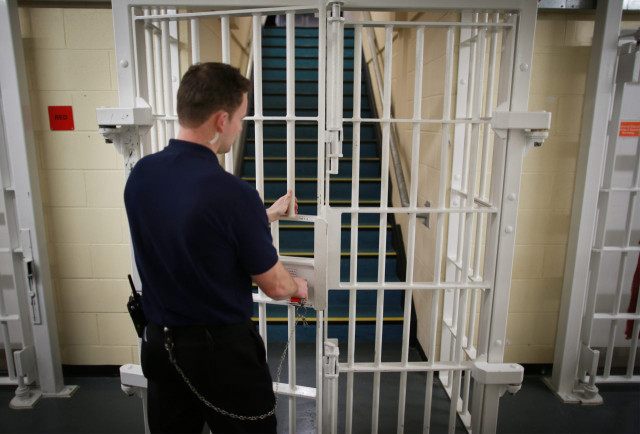The 2016 GOP platform tries to revive a stalled political deal that would allow Democrats to release thousands of criminals if Republicans also get new rules that restrict the prosecution of white-collar executives for violating federal business regulations.
The trade is hidden under under the euphemistic category of “criminal justice reform.” Democrats want more leniency for their blue-collar criminals, while Republicans want more courtroom defenses for white-collar executives charged with violating the proliferating variety of federal regulations.
According to the new platform:
Two grave problems undermine the rule of law on the federal level: Over-criminalization and over-federalization. In the first case, Congress and federal agencies have increased the number of criminal offenses in the U.S. Code from 3,000 in the early 1980s to more than 4,500 today. That does not include an estimated 300,000 regulations containing criminal penalties. No one, including the Department of Justice, can come up with accurate numbers. That recklessness is bad enough when committed by Congress, but when it comes from the unelected bureaucrats of the federal agencies, it is intolerable. The power of career civil servants and political appointees to criminalize behavior is one of the worst violations of constitutional order perpetrated by the administrative state…
To deal with this morass, we urge caution in the creation of new ‘crimes’ and a bipartisan presidential commission to purge the Code and the body of regulations of old ‘crimes.’ We call for mens rea elements in the definition of any new crimes to protect Americans who, in violating a law, act unknowingly or without criminal intent. [Emphasis added.] We urge Congress to codify the Common Law’s Rule of Lenity, which requires courts to interpret unclear statutes in favor of a defendant.
The proposed exchange is outline in a section of the platform which calls for reductions in penalties for criminals that mostly hurt blue-collar communities and minority communities, such as gang-bangers and drug-sellers who are convicted for apparently non-violent crimes.
In the past, judicial discretion about sentences led to serious mistakes concerning dangerous criminals. Mandatory minimum sentencing became an important tool for keeping them off the streets. Modifications to it should be targeted toward particular categories, especially nonviolent offenders and persons with drug, alcohol, or mental health issues, and should require disclosure by the courts of any judicial departure from the state’s sentencing requirements. [Emphasis added.]
The platform’s offer of reduced jail sentences for blue-collar criminals — drug-runners, murderers, muggers — is tied to a rollback of criminal prosecutions rules.
To get a guilty verdict, prosecutors would be required to prove that company executives actually intended to break the law under the new reforms. Currently, prosecutors merely have to show that the executives broke a law, no matter how obscure or complex.
As one critic wrote, “The Senate bill would make it too hard to convict culpable actors because it says that for crimes without an explicit mens rea requirement, prosecutors must prove willfulness — defined as ‘knowledge that the person’s conduct was unlawful.'”
But Democrats are reluctant to trade the mens rea, guilty mind rollback for the opportunity to release criminals back onto the streets.
Shortly after the Senate introduced the Sentencing Reform and Corrections Act of 2015 (SRCA), a witness from Obama’s department of Justice declared the bill would “cause extreme and very harmful disruptions to essential federal criminal law enforcement operations,” and would “make it considerably more difficult to effectively prosecute violent crimes, sexual offenses, corporate wrongdoing, and other serious misconduct.”
Yet unless Democrats agree to the mens rea requirements, crucial swing-vote Sen. Orrin Hatch, who sits on the Senate’s judiciary panel, told advocates in May that he won’t back the SCRA. “The current criminal justice bill is inadequate … [unless it deals with] the problem of over-criminalization,” he said.
House Speaker Paul Ryan intends to push legislation slashing sentences for federal prisoners amid rising murder rates in U.S. cities, cops being targeted for execution by black radicals, and a heroin epidemic fueled by Mexican drug cartels and their illegal alien traffickers.
The SCRA companion bill has stalled in the Senate after several prominent Republicans, including Sens. Jeff Sessions, Tom Cotton, and David Vitter — along with law enforcement groups — slammed the bill, saying it would sign “death warrants” for more crime victims.
The Obama administration plans to release as many as 70,000 federal prisoners with or without the GOP’s help.

COMMENTS
Please let us know if you're having issues with commenting.